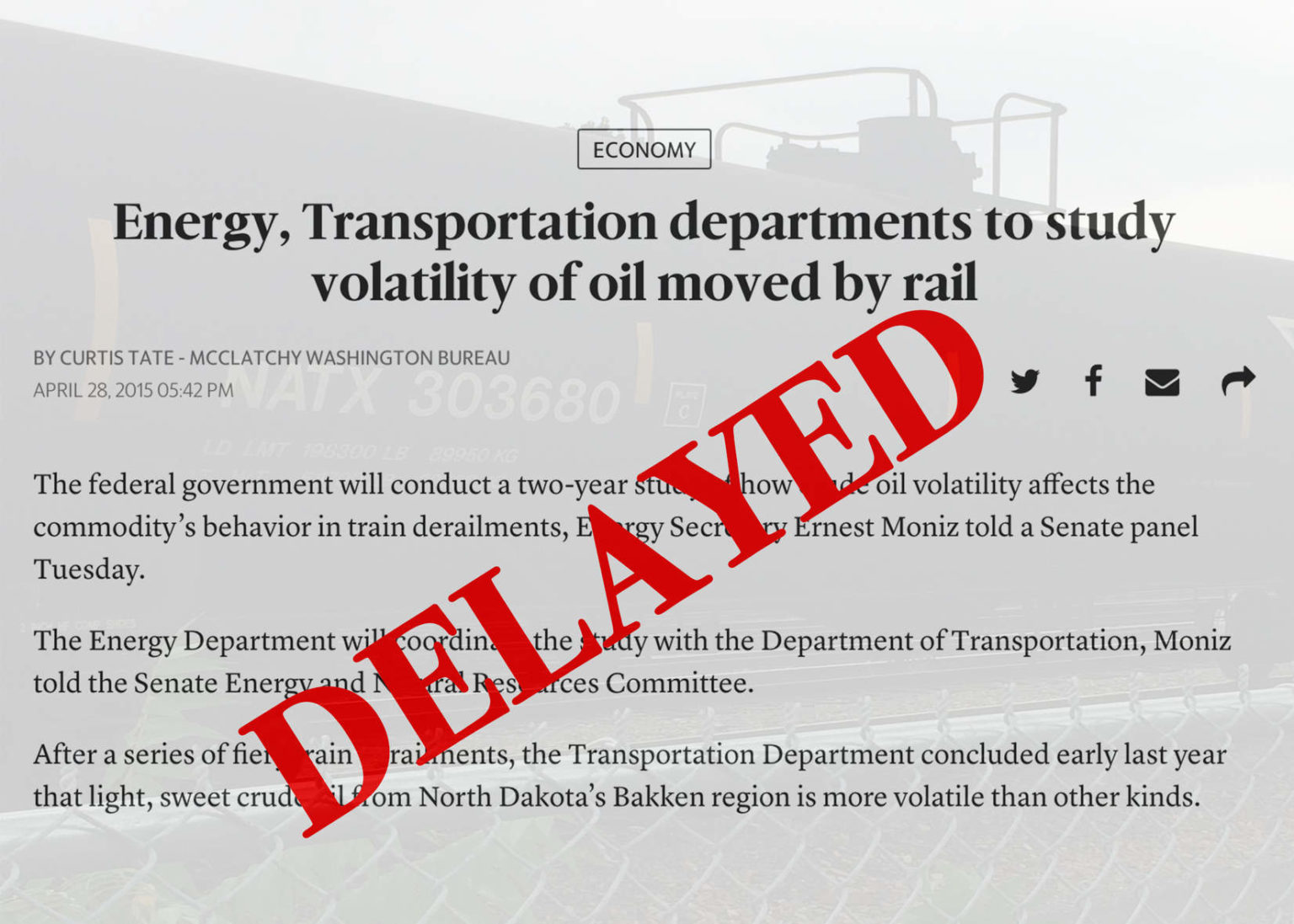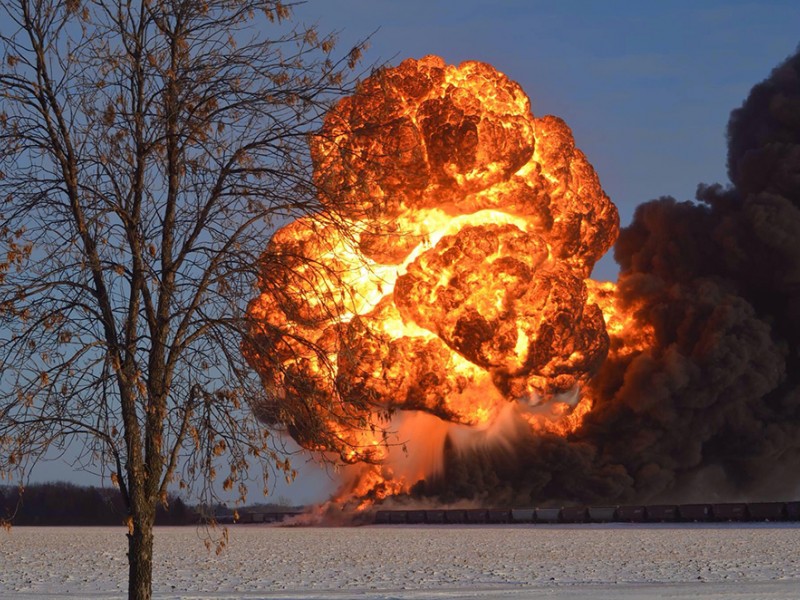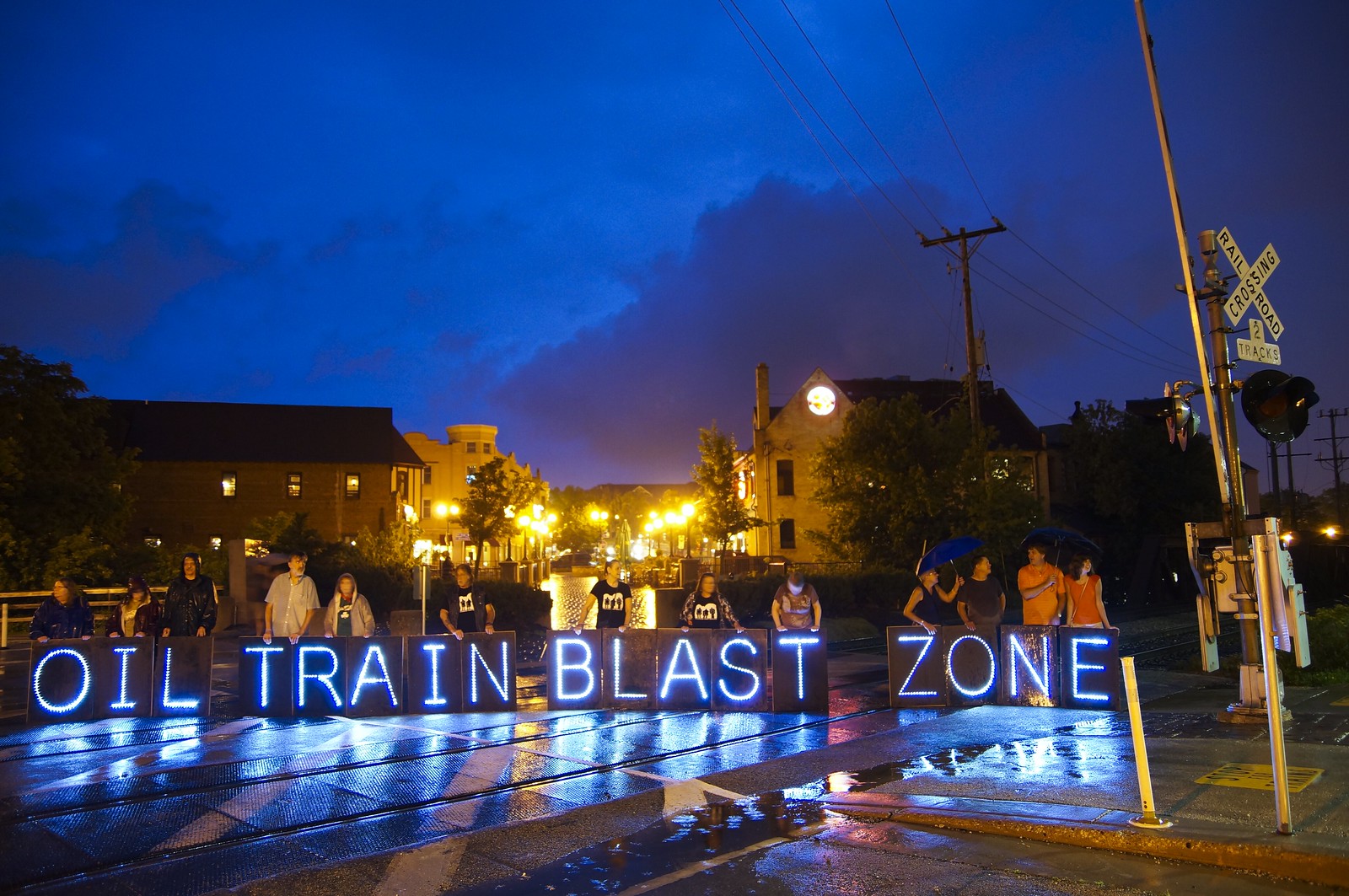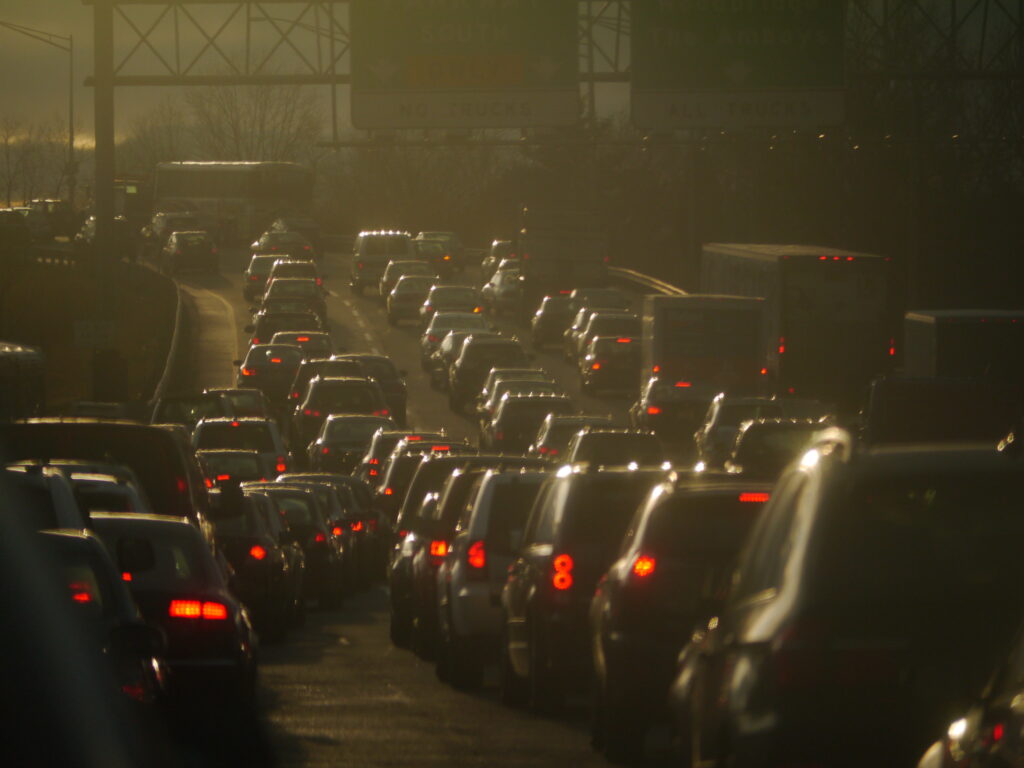In an attempt to reduce the risk of fiery oil train accidents, the state of Washington is working to pass a bill that would limit the vapor pressure of oil on trains to below 9 pounds per square inch (psi). Vapor pressure is a measure of the volatility of flammable liquids and correlates to their likelihood of igniting. Higher vapor pressure means an oil is more volatile and more likely to ignite and burn when a train derails.
“If the federal government won’t act to protect public safety and adopt a safer nationwide standard, we will adopt our own,” state Sen. Andy Billig (D-Spokane) said of the bill he sponsored. “There is just too much to lose — for people and our environment.”
Billig’s comments point to the federal government’s repeated failure to address the volatility of the oil moving by rail in America.
The Obama administration specifically left this issue out of the Department of Transportation’s 2015 regulations on moving oil by rail. In May 2017, half a dozen state attorneys general petitioned the federal government to regulate vapor pressure, which resulted in a proposed rule at the end of the Obama administration.
This oil train vapor pressure rule has gone nowhere in the Trump administration.
As DeSmog reported in 2016, the American Petroleum Institute has said that even having these discussions about regulating oil vapor pressure is “dangerous.”
The fireball that followed the derailment and explosion of two trains, one carrying Bakken crude oil, on December 30, 2013, outside Casselton, North Dakota. Credit: U.S. Pipeline and Hazardous Materials Safety Administration
Unsurprisingly, the state of North Dakota, where much of the highly volatile crude oil moved by rail in America is produced, opposes Washington state’s rule and is preparing to sue the state over it.
However, in a surprising moment of honesty, North Dakota’s top oil regulator didn’t bother pretending this opposition was about safety and instead revealed the real motivation: money.
Lynn Helms, director of the North Dakota Department of Mineral Resources, said that taking the steps to stabilize the crude oil (remove its volatile natural gas liquids) and achieve a vapor pressure of less than 9 psi would “devalue the crude oil immensely.”
The crude coming out of oil fields like North Dakota’s Bakken Shale is rich in natural gas liquids such as propane and butane, which make the oil more dangerous to transport but also more valuable. A value the industry and its allies in government aren’t willing to relinquish.
However, this isn’t really news. I wrote about a similar message from a North Dakota oil producer in 2014 when he too was opposing regulations to reduce the vapor pressure of Bakken oil before rail transport.
“The flammable characteristics of our product are actually a big piece of why this product is so valuable. That is why we can make these very valuable products like gasoline and jet fuel,” said Tony Lucero of oil producer Enerplus.
North Dakota Using Federal Government Delays to Avoid Regulation
Once trains carrying volatile oil from the Bakken Shale started blowing up on a regular basis in 2013, it became clear that the oil itself was part of the problem. Its high amounts of natural gas liquids make the oil more volatile and therefore more likely to catch fire and explode.
After the deadly oil train accident in Lac-Mégantic, Quebec, that killed 47 people, there was confusion about the associated explosions and intense fires that burned for days. As the Wall Street Journal reported at the time, an oil executive said, “Crude oil doesn’t explode like that.”
Which is true. But crude oil mixed with lots of propane and butane, such as the Bakken’s crude oil, does explode like that. And trains carrying oil from the Bakken continued to explode like that after derailing again and again.
Rainy Day Train Message/Oil Train Protesters. Credit: Joe Brusky, CC BY–NC 2.0
The Obama administration argued that it couldn’t regulate oil vapor pressure because the issue was disputed scientifically and required more study. More than three years ago, I wrote that this was simply a delay tactic and that claiming the oil industry didn’t understand the fundamental science of crude oil was absurd:
“The oil industry and the government regulators in charge of regulating the industry don’t understand the basic science of oil. This is the core of the argument used to justify why they continue to run dangerous trains filled with Bakken oil through communities across North America. Do you believe them?
Despite the audacity of this position, it is being used to delay any new regulations and to support the idea that the mystery of why Bakken crude oil explodes must be studied for years before it would be possible to make any regulatory decisions.”
Meanwhile, as I’ve also been writing for years, if you ask an oil expert like Ramanan Krishnamoorti, a professor of petroleum engineering at the University of Houston, you learn that couldn’t be further from the truth.
“The notion that this requires significant research and development is a bunch of BS,” Krishnamoorti wrote in an email response to Al Jazeera. “The science behind this has been revealed over 80 years ago, and developing a simple spreadsheet to calculate risk based on composition and vapor pressure is trivial. This can be done today.” [emphasis added]
The Departments of Energy and Transportatin announced the start of a study that was supposed to resolve this issue — four years ago — in April of 2015. At the time, regulators referred to it as a two-year study.
In late 2016, at the Energy by Rail Conference in Arlington, Virginia, Suzanne Lemieux of the American Petroleum Institute gave a presentation on crude oil volatility and stabilization. While arguing once again that there wasn’t clear evidence that stabilizing oil reduces its volatility and risk, Lemieux noted that the federal study on the issue had been delayed. She said now it was expected to conclude sometime in 2018.
The explanation for the delay was that the researchers at Sandia National Laboratories were still collecting samples of the oil in late 2016 — almost a year and a half after the “two-year” study was announced.
And now, four years later, according to The Bismarck Tribune, North Dakota oil regulator Lynn Helms “encouraged [Washington] legislators to wait for the results of a Sandia National Laboratories study that was commissioned by the U.S. Department of Transportation and the U.S. Department of Energy.”
North Dakota’s top oil regulator is trying to convince legislators in Washington state that a proposal they’re considering to reduce the volatility of Bakken crude oil transported by rail is not supported by science.https://t.co/J0v3BNaiqh
— KOMO News (@komonews) April 1, 2019
Four years later. The federal government is unable to complete a two-year study in four years on a question which oil experts already know the answer to.
A very effective delay tactic that means no one can “devalue” the oil implicated in multiple explosions and 47 deaths.
Main image: Screen shot of McClatchy article combined with Justin Mikulka’s oil train photo and text. Credit: Justin Mikulka
Subscribe to our newsletter
Stay up to date with DeSmog news and alerts








